So what is the highest paying railroad job, you ask? The Director of Engineering is the highest paying railroad job, followed by the locomotive engineer and train conductor.
But there are many great employment options in this industry; read on.
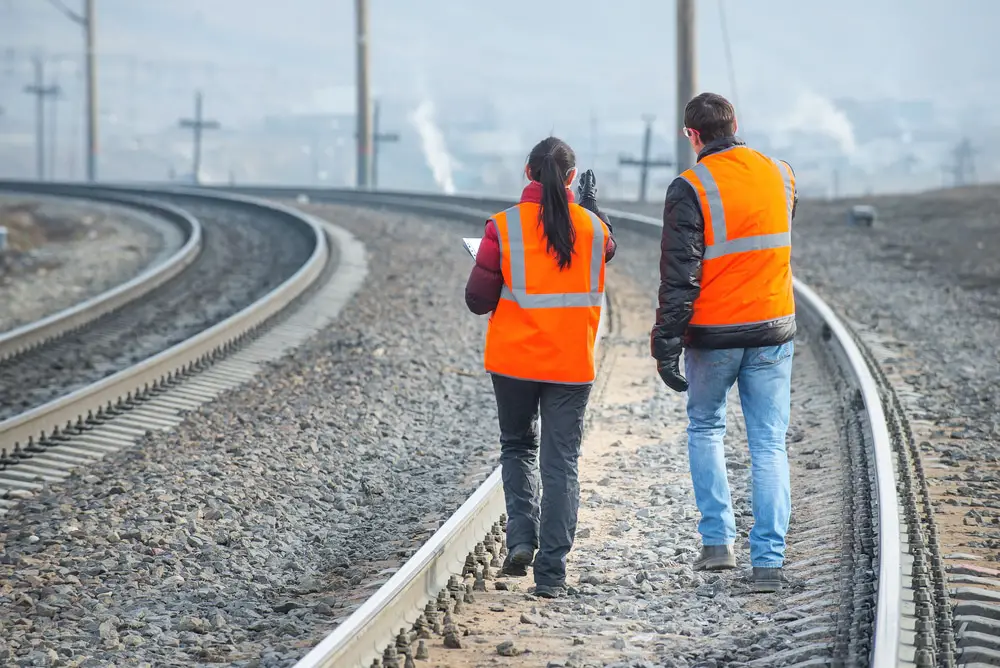
As many people know, railroad jobs are one of the most fulfilling careers a man or woman can have.
Some say it’s because of the changing scenery and the travel, while others just really have a passion for railroading as a whole.
But, one thing tops it all off that most railroaders can admit. It’s the benefits and the wages. Indeed, railroad jobs are also one of the best-compensated out there.
With that said, you might wonder, what railroad jobs pay the most?
Ultimately, the Director of Engineering is among the jobs with the highest salary. Competing occupations include the locomotive engineer and the well-known train conductor.
There are also high-paying off-board jobs. This includes being a Carman, yardmaster, or signal maintainer.
In today’s post, we look further at what railroad jobs pay the most. If you’re looking for a new career, you might find something that suits you in this list.
Before we head on, it’s important to note that salaries are pretty fluid. We rounded these jobs based on statistics and numbers.
But, salaries can still vary based on many factors. This includes the company, the state, your experience, and more.
For instance, a railroad job in Kansas can be much different from those in Michigan.
Also, some of these jobs are earned through promotions and years of work. This means that you have to start out as a crew member and work your way up.
And this is usually the case for most high-ranking railroad jobs.
Let’s get started.
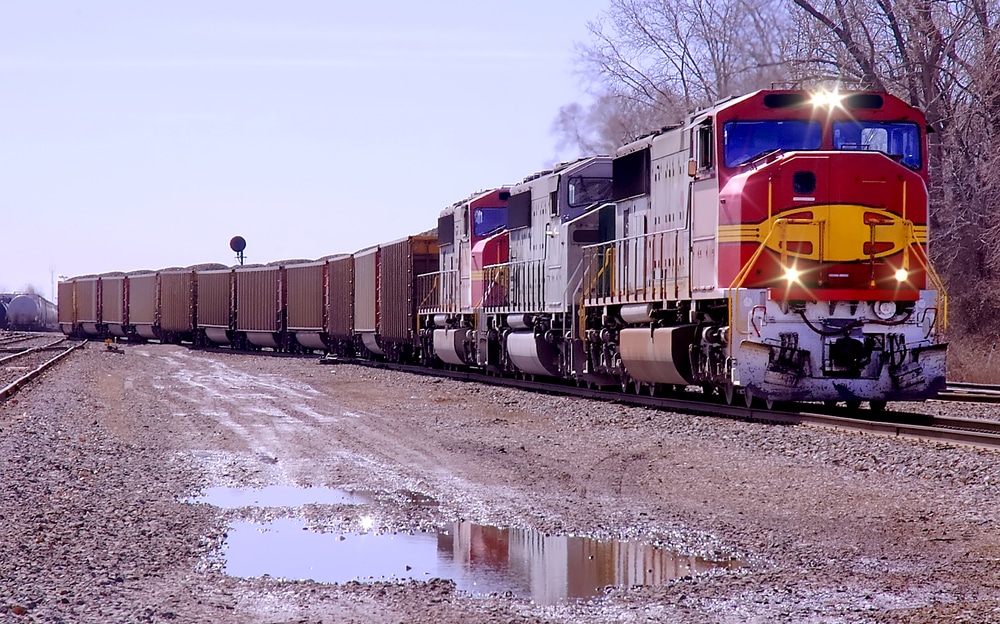
The award for the highest paying railroad job goes to…… (drum roll).
Director of Engineering (DOE)
Estimated yearly salary: $130,000-$150,000
The railroad DOE is in charge of overseeing the train’s engineering team. In most cases, this team consists of 2 to 20 managers.
Amongst other important matters, they ensure that all planned routes are finished on time.
Other responsibilities of the DOE include:
- Eliminating unnecessary expenditures
- Strategizing together with high-level managers to guarantee appropriate safety procedures
- Executing initiatives on schedule
- See to it the projects fit under budget and the necessary scope
Their average salary spans between $130,000-$150,000. This put the job among the highest-compensated in the railroad industry.
One of the best things about most railroad jobs is that they only need a high school diploma. But this isn’t always the case in the DOE position.
This railroad job normally requires a bachelor’s degree. Specifically, a degree in engineering.
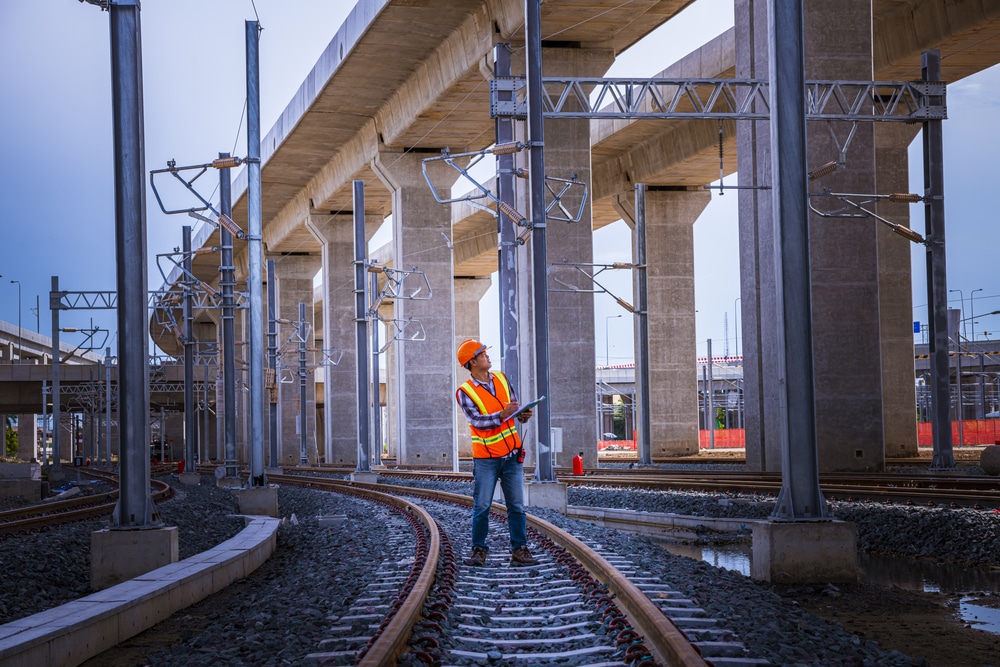
Locomotive Engineer
Estimated yearly salary: $80,000+
This job plays a crucial part in day-to-day business operations. A locomotive engineer handles driving the train from point A to B.
They precisely organize each stop’s schedule and timetable.
They do not specifically drive the train like drivers. Instead, they keep close tabs on its speed, braking, and steering, while the train is moving.
Moreover, locomotive engineers are the ones who interact with control centers. On top of that, they keep updates on any significant train rail changes.
Successful monitoring of a train involves a considerable amount of juggling tasks. Apart from controlling the locomotive itself, they must also:
- Observe the weather changes
- Maintain composure in critical situations
- Check radio messages from control stations
- Assess the train’s dimensions, mass, speeds, and pressures.
- Spot possible difficulties before they turn into significant issues.
- Examine the locomotive and rail lines for damages
- Record the results
The BLS estimates the annual salary for this position to be roughly $80,000 yearly.
It is also important for a locomotive engineer to know the type of cargo a train is transporting. This is because there are different protocols for different types of freight.
Thus, locomotive engineers will decide on altering the driving style and timetable based on the cargo.
The typical career path for locomotive engineers starts as conductors, and one must also have a Federal Railroad Administration certification.
The exam includes a written knowledge test and an ability test. It also consists of a visual and hearing evaluation. And finally, you’ll need to recertify for each route.
Onto our favorite job!
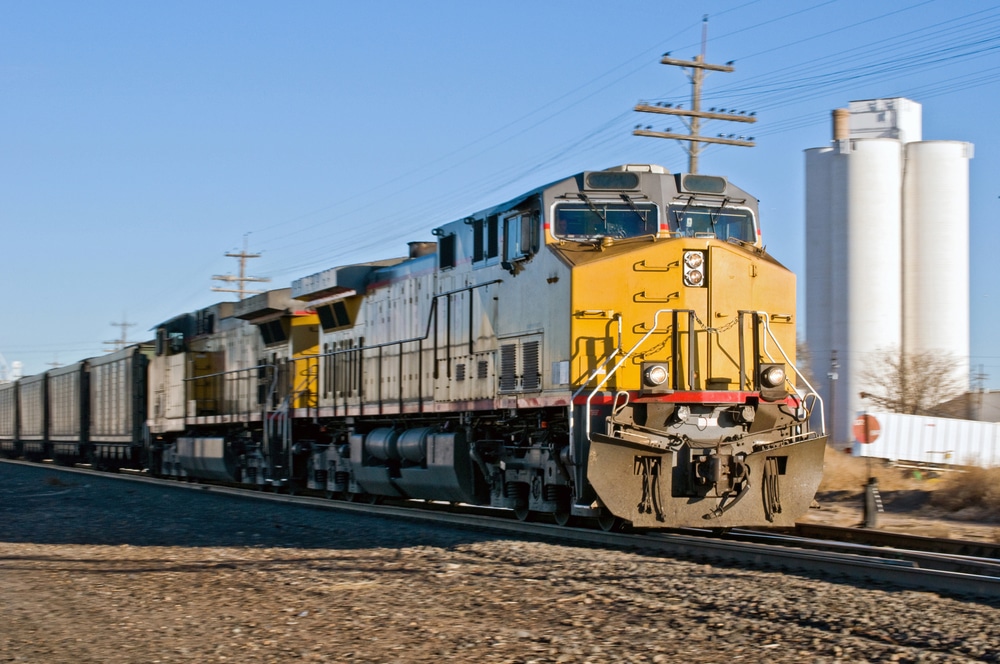
Train Conductor
Estimated yearly salary: $67,000-$150,000
Train conductors are those who have close engagement with passengers. They’re in charge of ensuring everyone has a good time and is safe.
It’s like the train’s onboard customer service. They supervise the work of the crew. Train conductors also inform passengers upon arrival.
So, what is a train conductor’s salary? This railroad job may earn a yearly average of $67,000 in the United States. But, it can also reach up to $150,000.
Apart from the tasks listed above, the train conductor is also responsible for:
- Observing the train’s timetable
- Supporting and assisting passengers
- Planning safety during emergencies
- Assessing tickets
- Collecting money for last-minute tickets
- Ensure that all staff members and passengers adhere to government rules
Some conductors specialize in passenger services alone. Some, though, can work as freight train employees.
On freight trains, train conductors ensure that all cargo is added or discharged.
Besides that, they supervise the duties of the whole freight train staff. The work entails ensuring the efficiency of the journey.
In some cases, train conductors are hired as “additional” boards. This implies that they’ll only serve when the train requires workers.
And like locomotive engineers, train conductors should also have an FRA certification.
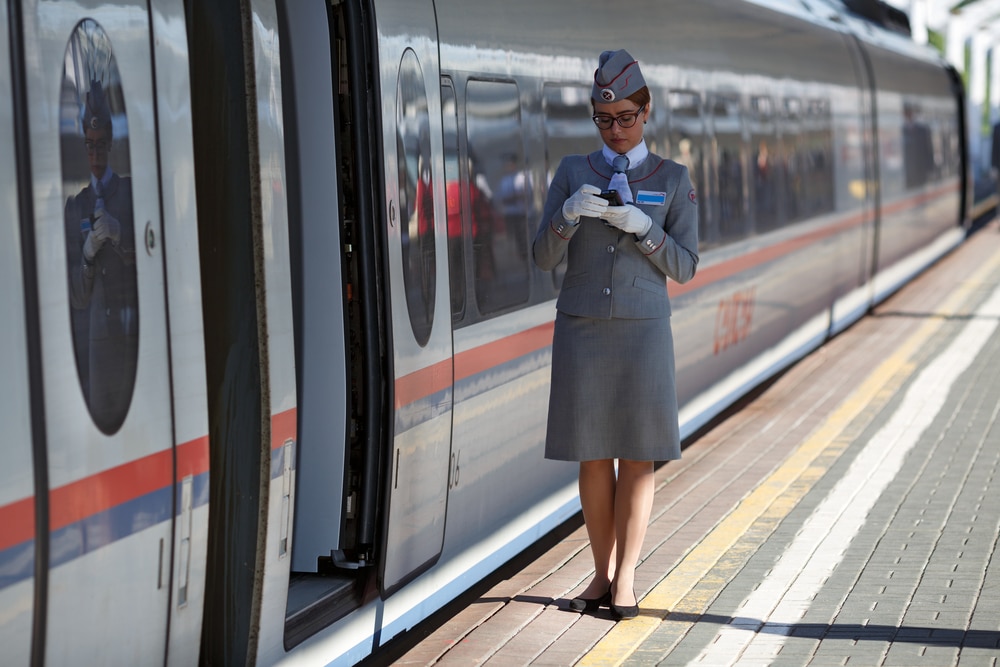
Signal Maintainer
Estimated yearly salary: $67,000-$150,000
As the name supplies, a signal maintainer’s job is to maintains signals. They test, maintain, and inspect the signaling apparatus.
Signal maintainers guarantee that everything signal-related functions properly and continuously.
Moreover, the job requires a strict following of federal law and state laws. . They conduct monthly checks to verify that every material in the course works.
They travel along the track from time to time, too. This allows them to confirm the proper functioning of signals. On top of these tasks, signal maintainers also do the following:
- Clear up signal glasses
- Check out the electrical wiring
- Replating failed and dysfunctioning light bulbs
- Repair or replace any broken wires or circuitry
- Ensures all signs are readable and clear
Signal maintainers not only examine the indicators along railroads. They also assess and troubleshoot safety gates.
It’s a huge responsibility. Moreover, applicants should gear up for overtime tasks. For example, they’ll respond to emergency calls at all hours of the day or night. They get called any time to troubleshoot signals.
And finally, this job requires electricity and signaling railroad expertise. Most railroad companies prefer applicants with an electrical engineering degree.
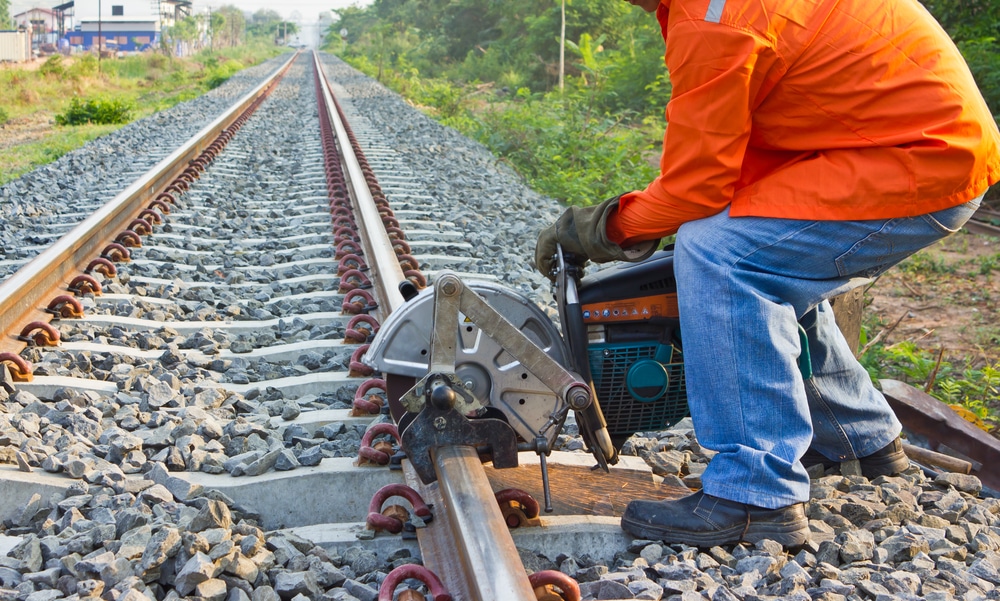
Rail Track Maintainer
Estimated yearly salary: $37,500-$124,000
Track Maintainer positions are suitable for individuals who enjoy spending time outdoors. Individuals eyeing the job must also have excellent hand-eye coordination.
The primary responsibility will be to inspect rails for faults. Also included are the replacement and repair of rail-related equipment. This can include damaged rails, spikes, anchors, and switch ties.
Rail track maintainer shifts are not usually 9-5. Typically, they work at unpredictable hours. Some also come in during weekends and holidays if needed. Thus, it requires a lot of time away from home.
This position also demands impressive fitness and health. Occasionally, track maintainers must lift up to 25-45 kg. They also do work outdoors through all types of weather situations and will also be constant contact with dust, vibrations, and noise.
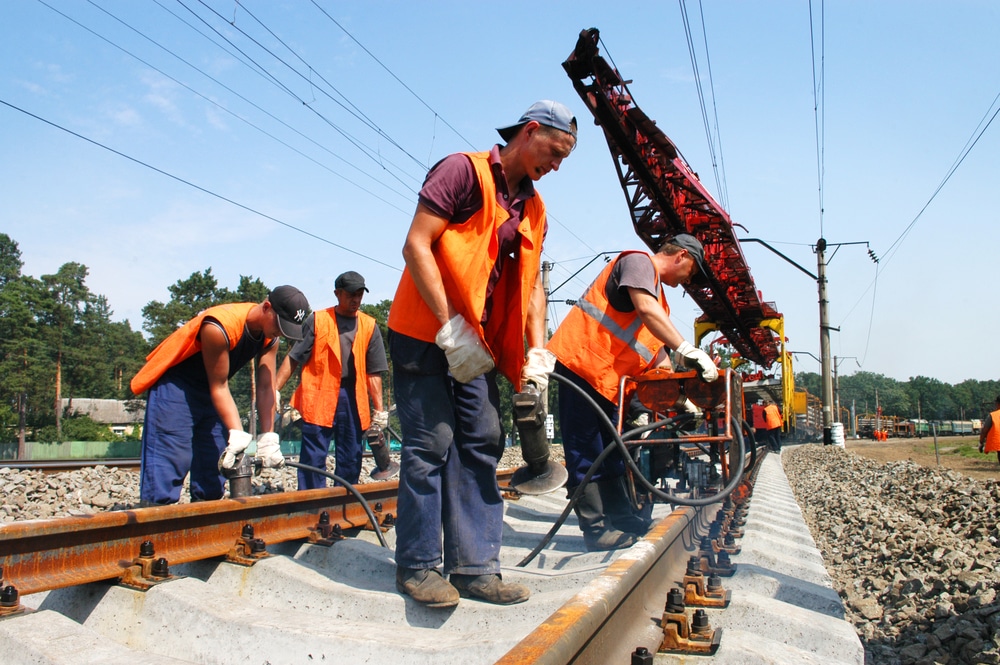
Carman
Estimated yearly salary: $45,000-$60,000
Carmen are railroad technicians who specialize in maintaining freight cars. The majority of their duties entail technical and mechanical abilities.
They check freight cars and make restorations and routine maintenance. It is a tremendously strenuous occupation. In addition, it frequently needs heavy lifting and operating at heights. Furthermore, a Carman must have an understanding of key areas such as:
- Welding
- Burning
- Checking blueprints
- Heavy machinery
- Building new or current equipment
The Carman is also accountable for evaluating and fixing all sorts of rail vehicle parts. This includes the train gaskets, brakes, air hoses, anchorage apparatus, and more.
In other words, they check for any locomotive issues. From here, they replace or fix any necessary defective parts.
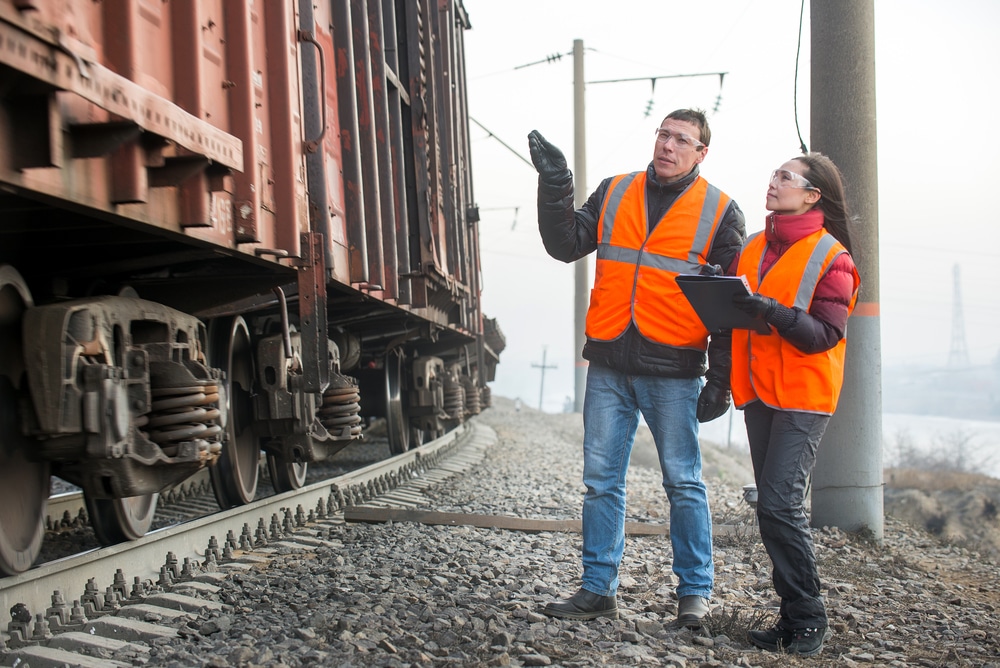
Yardmaster
Yardmasters are in charge of keeping an eye on everything that goes on within a rail yard. Basically, rail yards are places that store and sort locomotives and cars.
According to Glassdoor, the estimated annual income for this position is $52,000.
However, others earn as much as $70,000. Ultimately, it depends on the corporation they work for.
Other contributing factors to the salary are the years of experience and skills.
Some yardmasters work hand in hand with the carmen and other railroaders. Others work independently. And from here, staff just regularly present them with reports and information.
This profession requires a high degree of meticulousness. On top of this, it is another physically-demanding position. It requires standing for hours and working outdoors.

Track Inspector
Inspectors check and monitor the performance of railway tracks and infrastructure. It’s also their job to keep an eye out for any problems and report them immediately.
Here are some of other important duties:
- Creating and executing a schedule of regular track inspection
- Coordination of railway track test vehicle operation
- Perform on-site examinations where specified faults exist
- Assess the extent of the issues and the most effective measures for repair

The Top Reasons Why You Should Work For The Railroad
But, why should one work in the railroad industry? Well, as you can see, it’s financially beneficial. Yet, it also provides a wide range of other advantages, these include:
1. Great Variability
The railroad is a world of its own. There are several variables involved. So, you could shift jobs without changing careers.
Conductors and locomotive engineers are the most well-known jobs in the industry. But, there are a variety of occupations on the train. This is especially true in Class I railroad companies. Jobs span from customer service representatives to railway police.
Thus, you can follow a variety of directions.
The sky is the limit here!
2. Different Viewpoints and Perspectives
Let’s say you live in Maine. Think you’ve seen everything there is in your hometown? I beg to disagree. Trust me when I say there’s another side to it that you haven’t seen.
And you can only experience it with railroad jobs in Maine.
Simply put, railroads can go to places that any human or car cannot. I’m not just referring to small provinces and states. Railroads can even unravel more beauty in big states like New York.
And railroad history is rich. Can you imagine working on a 100-year-old track? In today’s digital world, it’s a gem.
3. Medical Benefits
As you grow older, you begin to realize the great importance of medical insurance. Unfortunately, good medical benefits are hard to come by these days.
Not with the railroads, though! Railroad companies, especially Class Is, offer exceptional medical coverage.
You might be thinking “but I’m in perfect condition right now”. Even so, a railroading career can be long and arduous. Plus, no one remains youthful forever.
So, it’s always great to have good medical insurance. Some coverage also extends to your family members.
4. Railroad Retirement
Just like medical benefits, pensions are also difficult to get.
Corporate jobs nowadays just stick to 401(k) plans. But, railroaders fall under the Railroad Retirement Act.
Upon retiring, both you and your spouse enjoy the benefits.
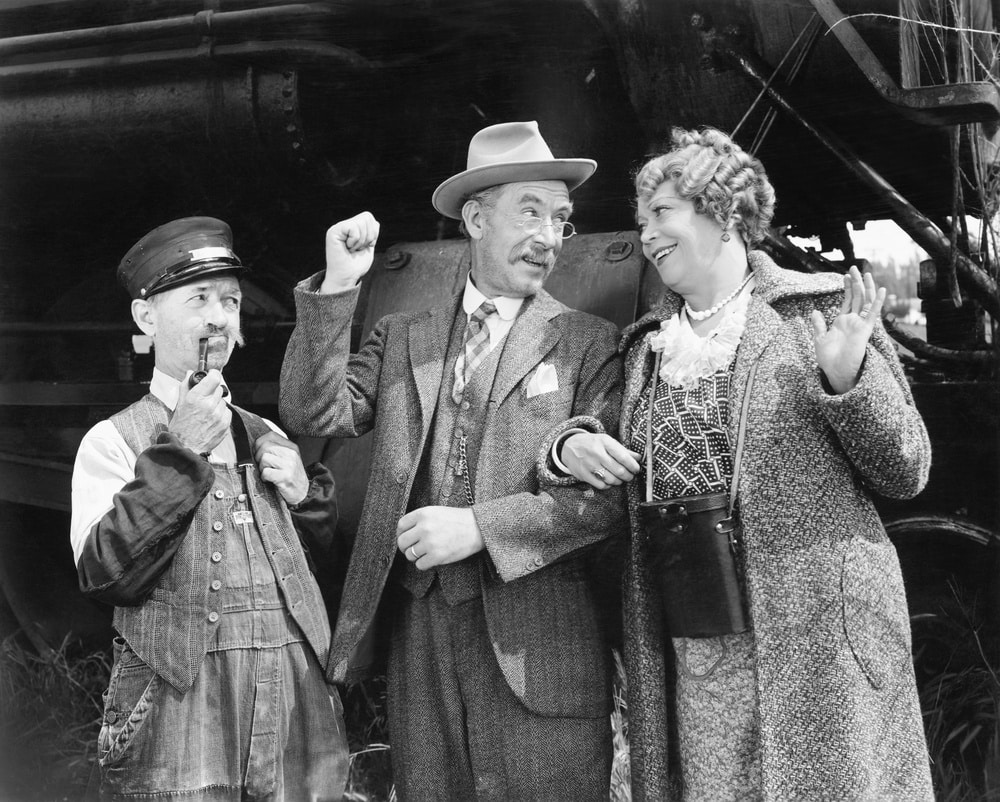
What is The Highest Paying Railroad Job? The Bottomline
The railroad jobs that pay the most are the DOE and Locomotive Engineer. Additionally, strong contenders are the train conductor and signal maintainer.
There is also the rail track maintainer, Carman, yardmaster, and track inspector.
Then again, these positions are earned. It’s unlikely to start at the very top when you begin railroading. Most likely, you will start as a crew member.
And after years of hard work, you’ll get promoted. This is a very common path in the railroad industry. All it takes is determination.
You should also keep in mind that railroading isn’t all fun. You’ve probably seen above that there are long hours. That’s why it’s such a well-respected job.
It’s no wonder why railroaders are highly compensated.
So, if you really want to start with railroading, go ahead; you won’t look back.
Check out our list of Railroad Jobs in each state HERE.
We wish you all the best!

